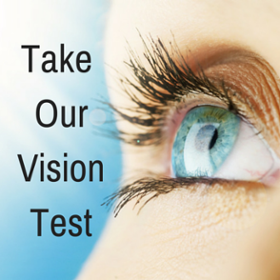A new treatment is helping people with stroke-induced blindness achieve major improvements in their vision.
Loss of sight due to a brain injury, usually from stroke, affects around a third of stroke survivors.
The damage caused by a stroke impacts on the visual pathways of the eye which can result in blurry vision, double vision and difficulties processing visual information.
Professor Arash Sahraie, head of the school of psychology at the University of Aberdeen who led the study, said: ‘This type of sight deficit can be massively debilitating for those affected by it.
‘Patients report a loss of confidence in their own ability to navigate the environment that can then manifest itself in the form of withdrawal from daily life.
‘This is why it’s important to develop techniques to help patients to improve as much as they can and this compensatory technique is yet another step forward in providing help and therapy for these patients.’
A stroke occurs when the blood supply to a part of the brain is cut off.
It can be caused either by a blood clot, known as an ischemic stroke, or a burst blood vessel in or around the brain, which is called a haemorrhagic stroke.
A stroke can lead to brain injury, disability or even death. Many of those who suffer serious brain damage never fully recover.
Professor Sahraie said: ‘We have developed the research into an accessible treatment that can help patients achieve major improvements in their vision within about two to three weeks.
‘The therapy is adaptive and can tailor the treatment programme according to the needs of the individual.
‘Our study found that this treatment can improve what remains of the partially sighted patients’ vision by training them to better detect objects in their visual field.’
Research on the new NeuroEyeCoach treatment was published in the academic journal Biomed Research International.


